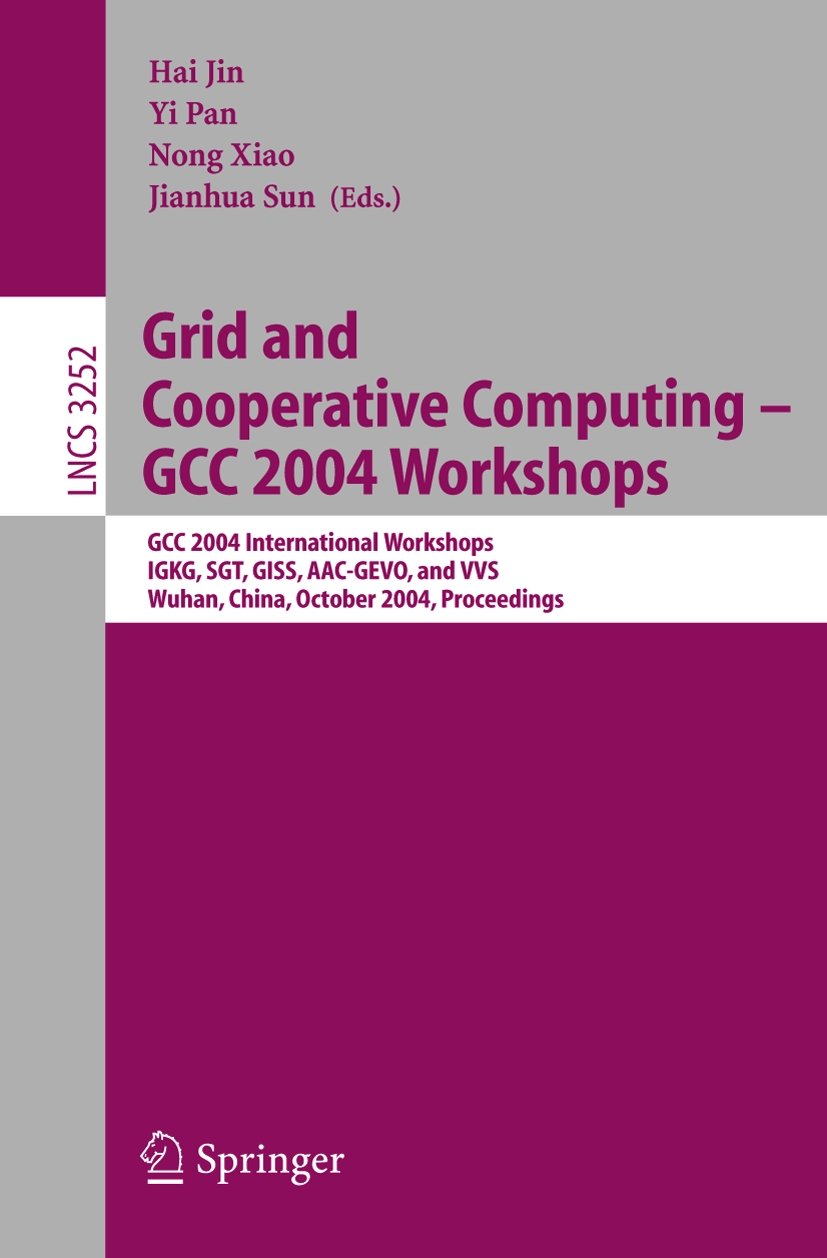Grid and Cooperative Computing - GCC 2004 Workshops
by Hai Jin
2020-04-19 20:26:30
Grid and Cooperative Computing - GCC 2004 Workshops
by Hai Jin
2020-04-19 20:26:30
Welcome to the proceedings of GCC2004 and the city of Wuhan. Grid computing has become a mainstream research area in computer science and the GCC conference has become one of the premier forums for presentation of new and exciting research in all asp...
Read more
Welcome to the proceedings of GCC2004 and the city of Wuhan. Grid computing has become a mainstream research area in computer science and the GCC conference has become one of the premier forums for presentation of new and exciting research in all aspectsofgridandcooperativecomputing. Theprogramcommitteeispleasedtopresent the proceedings of the 3rd International Conference on Grid and Cooperative Comp- ing (GCC2004), which comprises a collection of excellent technical papers, posters, workshops, and keynote speeches. The papers accepted cover a wide range of exciting topics, including resource grid and service grid, information grid and knowledge grid, grid monitoring,managementand organizationtools, grid portal, grid service, Web s- vices and their QoS, service orchestration, grid middleware and toolkits, software glue technologies, grid security, innovative grid applications, advanced resource reservation andscheduling,performanceevaluationandmodeling,computer-supportedcooperative work, P2P computing, automatic computing, and meta-information management. The conference continues to grow and this year a record total of 581 manuscripts (including workshop submissions) were submitted for consideration. Expecting this growth, the size of the program committee was increased from 50 members for GCC 2003 for 70 in GCC 2004. Relevant differences from previous editions of the conf- ence: it is worth mentioning a signi?cant increase in the number of papers submitted by authors from outside China; and the acceptance rate was much lower than for p- vious GCC conferences. From the 427 papers submitted to the main conference, the program committee selected only 96 regular papers for oral presentation and 62 short papers for poster presentation in the program.
Less
